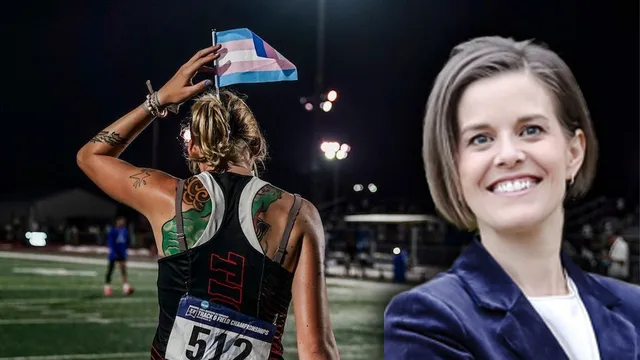
Maine violates Title IX by allowing transgender athletes in women's sports
2025-03-20 21:13- The Office for Civil Rights findings were based on an investigation into Maine's policies regarding transgender athletes in girls' sports.
- The federal ruling mandates compliance with Title IX, threatening federal funding if the entities do not correct the violations.
- Maine is at the center of a national debate on gender identity and fairness in sports as it continues to resist the ruling.
Express your sentiment!
Insights
In a significant ruling months ago, the U.S. Department of Health and Human Services Office for Civil Rights announced that three entities in Maine, including the Maine Department of Education, the Maine Principals' Association, and Greely High School, were in violation of Title IX. This conclusion followed an investigation that was triggered after a transgender athlete won a girls' high school championship in pole vaulting. The investigation was part of a broader enforcement of an executive order signed by President Donald Trump aimed at protecting female student-athletes from competing against biological males in educational and athletic settings. The executive order, known as 'Keeping Men out of Women’s Sports,' mandated that only biological females could compete in women's sports. The ruling required Maine entities to either resolve the matter within a specified timeframe by signing an agreement or face potential consequences, including the withdrawal of federal funding. The announcement emphasized the need for compliance with federal law and did not allow the state to delegate its responsibilities to the Maine Principals' Association. Legal experts suggest that this ruling could set a precedent for future cases involving transgender athletes across the United States. While the order aims to maintain fairness in women’s sports, it has sparked intense debate over gender identity, civil rights, and educational policy. Opponents of the ruling, including Maine's Governor Janet Mills and others in the Democratic party, argue that enforcing such policies undermines human rights protections that exist at the state level, citing the Maine Human Rights Act. This standoff has thrust Maine into the national spotlight, prompting discussions on how to balance athletic integrity with the rights of transgender individuals. The Maine officials' decision to defy the federal ruling has led to a polarized environment, where public sentiments regarding transgender rights in sports are becoming increasingly divisive. The outcome potentially affects not just funding for educational programs but also broader social implications regarding how society views gender and sports in the current climate.
Contexts
Title IX is a federal civil rights law that prohibits discrimination on the basis of sex in educational institutions that receive federal funding. In recent years, the application of Title IX has come under scrutiny, particularly concerning the participation of transgender athletes in sports. As schools and organizations navigate the complexities of inclusion and equity, debates arise around the balance of fair competition and the rights of individuals to participate in athletics in accordance with their gender identity. This report delves into the current landscape of Title IX violations related to transgender athletes, examining notable cases, legislative actions, and the overall impact on the sporting community. In various states across the United States, legislation has been introduced or enacted that directly affects transgender athletes' participation in school sports. Some laws restrict participation based on the sex assigned at birth, while others reinforce protections for transgender individuals, aligning with Title IX's overarching goal of preventing discrimination. These conflicting legal frameworks create a challenging environment for school districts and athletic departments, which must navigate compliance with Title IX while also adhering to state-specific regulations. As a result, there are ongoing legal cases where transgender athletes and their advocates challenge laws perceived as discriminatory, seeking to uphold their rights and advocate for fair treatment in athletic programs. Recent court rulings have highlighted these tensions, where judges have often had to weigh the merits of arguments regarding fairness in competition against the necessity of maintaining inclusive environments for all students. In some cases, courts have sided with transgender athletes by emphasizing Title IX’s commitment to ensuring equal opportunities, while in others, the arguments for fairness cited potential disparities in competitive advantage have led to restrictive measures. This ongoing litigation reflects a broader societal discourse on gender, sport, and equity, prompting many educational institutions to reassess their policies and practices regarding transgender participation in athletics. As discussions continue, it is essential for stakeholders, including policymakers, educators, and athletes, to engage in dialogue that prioritizes both inclusivity and fairness in competitive sports. The future of Title IX and its application to transgender athletes will likely evolve as more cases enter the legal system and as societal attitudes toward gender identity continue to progress. Ultimately, the resolution of these complex issues is crucial not only for the individuals directly involved but also for the integrity of athletic programs and the values of inclusion and equity that Title IX aims to uphold.